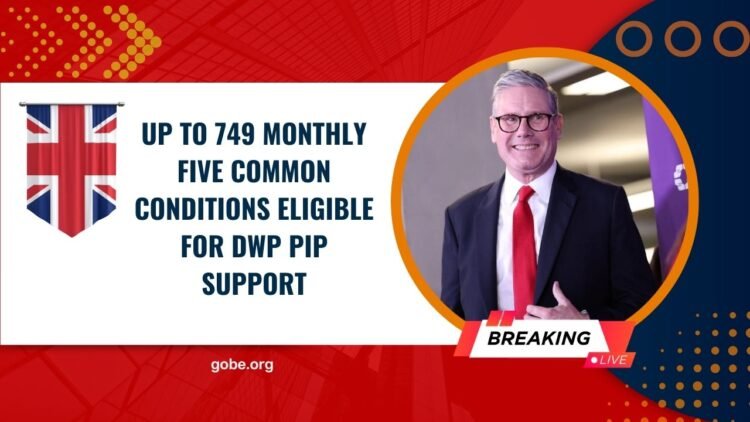The Personal Independence Payment (PIP) is financial support provided by the UK’s Department for Work and Pensions (DWP) for people aged 16 to State Pension age who have long-term health conditions or disabilities that make everyday living or getting around difficult.
- PIP has two components: Daily Living and Mobility.
- Rates were increased by about 1.7% for 2025/26.
- The maximum combined amount someone might receive is £749 per month, depending on whether they get the enhanced rates for both components.
Five Most Common Conditions That Qualify for PIP
The DWP has published that there are 178 medical conditions eligible for PIP in 2025. Among those, some conditions are more frequently claimed. Here are the top five:
| Rank | Condition | Percentage of Claims | Key Symptoms / Effects |
|---|---|---|---|
| 1 | Psychiatric disorders | ~ 39% | Anxiety, depression, panic attacks, PTSD; affects daily living & mental well-being. |
| 2 | Musculoskeletal disease (general) | ~ 19% | Widespread pain, arthritis, fibromyalgia; struggle with movement and general tasks. |
| 3 | Neurological disorders | ~ 13% | Conditions like MS, Parkinson’s, epilepsy; could affect coordination, strength, cognition. |
| 4 | Musculoskeletal disease (regional) | ~ 12% | Pain or mobility issues in specific body parts (back, shoulders, hips etc.); affects walking, daily tasks. |
| 5 | Respiratory diseases | ~ 4% | Asthma, COPD etc.; affects breathing, energy, mobility outdoors. |
Who Can Actually Get Up to £749 / Month
To receive the maximum benefit of up to £749/month, certain conditions must be met:
- You must qualify for the enhanced rate for both the Daily Living and the Mobility components.
- Your health condition(s) must significantly affect your ability to do everyday tasks or get around.
- The condition(s) often must be long-term. Temporary issues are less likely to qualify unless they are very severe.
- Evidence needs to back up how the condition affects daily life, mobility, or both.
Other Important Figures & Eligibility Details
| Item | Detail |
|---|---|
| Total eligible medical conditions | 178 known conditions accepted for PIP in 2025 by DWP. |
| Number of PIP claimants (England & Wales) | ~ 3.7 million as of April 30, 2025. |
| Rate-increase for 2025/26 | 1.7%, applied to PIP amounts. |
Why These Conditions Dominate Claims
- These conditions are either very common (e.g. psychiatric or musculoskeletal) or very disabling (e.g. neurological and respiratory in severe form).
- Many people with these conditions have difficulty with mobility, self-care, or communication — key criteria in PIP assessments.
- The percentage breakdown reflects not only prevalence, but also how difficult day-to-day living is for those affected.
Recent & Proposed Changes in PIP Eligibility
- Reforms are being discussed about tightening eligibility, especially the Daily Living component; claimants may need to show a higher level of difficulty in certain activities.
- Those changes are expected to affect new claimants more than existing recipients.
If you live with a long-term health condition or disability, knowing the most commonly claimed conditions for PIP can help you understand your chances of getting up to £749/month. Psychiatric disorders, musculoskeletal diseases (both general and regional), neurological disorders, and respiratory diseases top the lists.
But name alone is not enough — you’ll need evidence of impact, severity, and eligibility for enhanced rates in both Daily Living and Mobility components. With proposed changes underway, new claimants should stay informed to ensure they meet the revised criteria.
FAQs
If I have one of these common conditions, am I guaranteed PIP at £749/month?
No. Having one of the common conditions increases the chance, but you must meet the required severity and the assessment must show you need support that corresponds to the enhanced rates of both components.
What if my condition is not in the top five?
You still might qualify. There are 178 eligible conditions, including less common or rarer ones. It’s about how the condition affects you, not just its name.
What changes are coming to PIP that might make it harder to get support?
The DWP is proposing stricter criteria for the Daily Living component, including needing a minimum difficulty score in specific everyday tasks. These changes are likely to apply to new claimants first.

